Mental Health Awareness: Writing as a Healthy Outlet
Mental health is just as important as our physical health, and many educators understand this. According to the National Institute of Mental Health,...
AP & Honors Mathematics
Explore Wiley titles to support both AP and Honors mathematics instruction.
Literacy Skills & Intensive Reading
Connections: Reading – Grades 6–12
Empower student success with a proven intensive reading program that develops strong reading skills in striving readers.
Drama, Speech & Debate
Basic Drama Projects 10th Edition
Build students’ confidence and competence with comprehensive, project-based theatre instruction.
Literature
Connections: Literature
Support learners as they study dynamic, relevant texts and bring the richness of diverse voices to students through literature.
Literature & Thought
Develop critical thinking, reading, and writing across literacy themes, genres, historical eras, and current events.
Language Arts
Vocabu-Lit® – Grades 6–12
Help students build word power using high-quality contemporary and classic literature, nonfiction, essays, and more.
Connections: Writing & Language
Help students develop grammar, usage, mechanics, vocabulary, spelling, and writing and editing skills.
Reading/English Language Arts
Measuring Up to the English Language Arts Standards
Incorporate standards-driven teaching strategies to complement your ELA curriculum.
English Language Learners
Measuring Up for English Language Learners
Incorporate research-based best practices for ELLs with an approach that includes a focus on language acquisition strategies.
Mathematics
Measuring Up to the Mathematics Standards
Incorporate standards-driven teaching strategies to complement your mathematics curriculum.
Foundations
Measuring Up Foundations
Help students master foundational math skills that are critical for students to find academic success.
Science
Measuring Up to the Next Generation Science Standards
Give students comprehensive NGSS coverage while targeting instruction and providing rigorous standards practice.
Assessment
Measuring Up Live
Deliver innovative assessment and practice technology designed to offer data-driven instructional support.
For a better website experience, please confirm you are in:
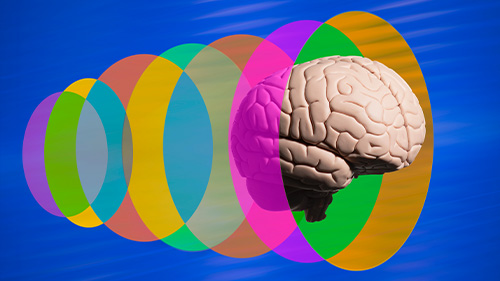
The words are never right. The time is never perfect. And life keeps piling stress after stress onto the people we love. What do we say to someone who might be struggling with a mental illness? I usually ask if I can help in any way or send them their favorite junk food with a heart-felt note. But does it really help? I don’t know.
In the book, Your Brain Needs A Hug: Life, Love, Mental Health, and Sandwiches, author Rae Earl uses a personable tone and humor to crack open the reader and bring perspective about a touchy topic—mental health. Near the end of the book, Earl gives the reader some advice on what to say or do for someone with a mental illness. The entire chapter is worth a read, but below is an excerpt to kick off your learning.
Earl starts off by saying that when we want to help someone with any illness we always default to what makes us feel better when we are in a hard situation, but to remember that that might not be what that person needs to hear or do. Everyone is different.
Perhaps it’s easier to start with a list of don’ts. There are universally unhelpful things to do or say to anyone that’s suffering with a mental illness:
Don’t try to solve all their problems… Don’t be the clown who tries to make them smile or the advice-giver who tries to wave a magic wand over their illness and their life. That isn’t helping them. Honor where someone is in their life, and listen.
Don’t tell them to pull themselves together, or to smile… Encourage them to seek professional help, but don’t moan at them. Sometimes going on and on about getting help may make someone feel pressured and stressed and perhaps less likely to get help.
Don’t hover over them like a hawk or smother them. (261).
Over the next several pages it talks about “very simple ways you can help someone with their mental health” and also “how to help yourself when you’re helping others.” Providing students with this guidance will give them the tools they’ll need to be a good friend, family member, or peer for their entire lives. Plus, honestly, how many of us teachers needed this guide too? I know I did!
Provide a few scenarios about encounters with someone who is struggling with mental illness and discuss the do’s and don’ts provided in this book. You can split students into groups or partners or have them work independently for 15 to 20 minutes, then circle around and have each group share thoughts about their assigned scenario. I recommend doing one scenario together as a class as an example.
Interested in buying any of the books mentioned in this post? Visit our classroom libraries page.
Download this pdf version to easily save or print!
Jennifer Epping is a high school English and journalism teacher in Des Moines, Iowa. She has a passion for reading, writing, and making lame jokes to her students just to see them laugh or roll their eyes. She just concluded her ninth year teaching. Epping graduated from Iowa State University with a BS in journalism and mass communication (2010) and BA in English Education (2013). She attended New York University’s Summer Publishing Institute (2010), and spent some time in children’s book publishing in New York

Mental health is just as important as our physical health, and many educators understand this. According to the National Institute of Mental Health,...
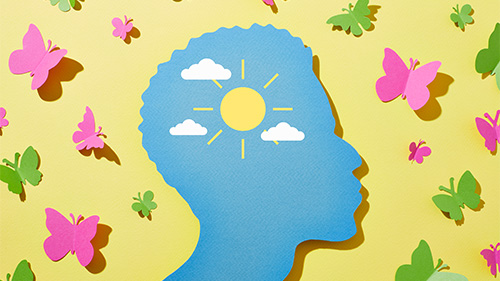
Juno Dawson is a prominent transgender activist and writer. Known for her fact-driven books, she focuses on topics teens wonder about or need to...

Being a teenager means a lot of things, but starting to date and get into romantic relationships or friendships sticks out as a huge milestone. The...

To be mentally healthy requires work, and many youth and their families turn to some kind of therapy, counseling, or inpatient program to aid in that...
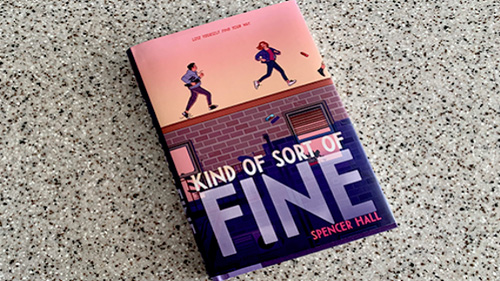
A bright part of every teacher’s day is getting to the class that your star student is in. You know the one. We see them reach for the sky every time...
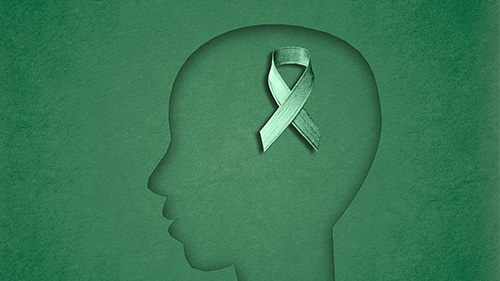
May is Mental Health Awareness Month. It’s also the last full month of school for traditionally-scheduled districts. I think mental health is the...

You know those books that you hug at the end? This is one of those books. All The Bright Places by Jennifer Niven is just plain good—heartbreaking,...

In Yolk, author Mary H.K. Choi portrays a pair of estranged sisters. They’ve grown apart following their childhood in Texas, and now both live in New...

The wonderful thing about Social Emotional Learning (SEL) is it isn’t content-specific; it can span all curriculum and grade levels. Knowing the five...

When my mother was going to school in the panhandle of Texas, she and her friends were punished if they spoke Spanish in school. When my brothers and...

In recent months I learned, along with others around the world, of the horrific stories of the mass unmarked grave sites of Indigenous, or...
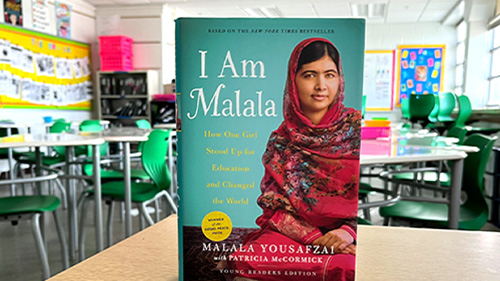
In recent months, the Taliban in the Middle East has taken over once again after American troops removed themselves. The first person I thought of...
